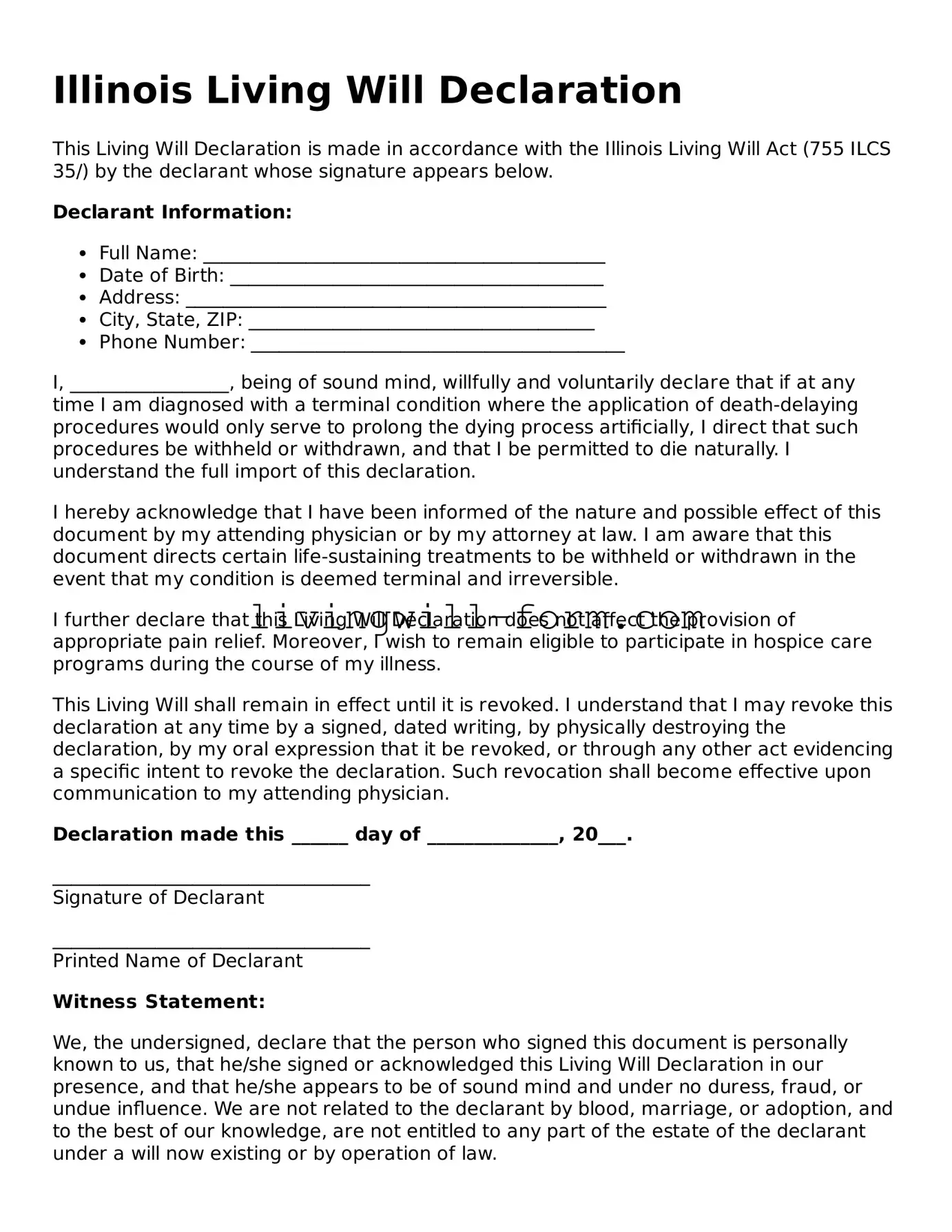Illinois Living Will Declaration
This Living Will Declaration is made in accordance with the Illinois Living Will Act (755 ILCS 35/) by the declarant whose signature appears below.
Declarant Information:
- Full Name: ___________________________________________
- Date of Birth: ________________________________________
- Address: _____________________________________________
- City, State, ZIP: _____________________________________
- Phone Number: ________________________________________
I, _________________, being of sound mind, willfully and voluntarily declare that if at any time I am diagnosed with a terminal condition where the application of death-delaying procedures would only serve to prolong the dying process artificially, I direct that such procedures be withheld or withdrawn, and that I be permitted to die naturally. I understand the full import of this declaration.
I hereby acknowledge that I have been informed of the nature and possible effect of this document by my attending physician or by my attorney at law. I am aware that this document directs certain life-sustaining treatments to be withheld or withdrawn in the event that my condition is deemed terminal and irreversible.
I further declare that this Living Will Declaration does not affect the provision of appropriate pain relief. Moreover, I wish to remain eligible to participate in hospice care programs during the course of my illness.
This Living Will shall remain in effect until it is revoked. I understand that I may revoke this declaration at any time by a signed, dated writing, by physically destroying the declaration, by my oral expression that it be revoked, or through any other act evidencing a specific intent to revoke the declaration. Such revocation shall become effective upon communication to my attending physician.
Declaration made this ______ day of ______________, 20___.
__________________________________
Signature of Declarant
__________________________________
Printed Name of Declarant
Witness Statement:
We, the undersigned, declare that the person who signed this document is personally known to us, that he/she signed or acknowledged this Living Will Declaration in our presence, and that he/she appears to be of sound mind and under no duress, fraud, or undue influence. We are not related to the declarant by blood, marriage, or adoption, and to the best of our knowledge, are not entitled to any part of the estate of the declarant under a will now existing or by operation of law.
- Witness 1
Signature: ___________________________________
Printed Name: _______________________________
Date: _______________________________________
- Witness 2
Signature: ___________________________________
Printed Name: _______________________________
Date: _______________________________________
Optional: Notarization
If notarization is not required by law but desired by the Declarant, complete the following:
State of Illinois )
County of ___________ )
Subscribed and sworn to (or affirmed) before me on this ___ day of ___________, 20___, by _______________________, the declarant.
__________________________________
Signature of Notary Public
My commission expires: _______________

